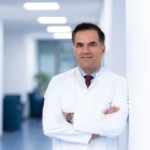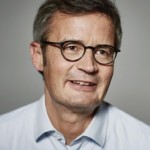The Essen University Hospital treats the entire spectrum of neurosurgical diseases of the head and spine. These include:
- Tumors;
- Vascular diseases;
- Injuries.
The German Clinic for Neurosurgery treats any form of traumatic brain injury: from clinical and neurological observation to complex multidisciplinary surgical interventions.
Achievements of the Department of Neurosurgery
The neurosurgery center serves 250 patients with traumatic brain injury annually. It is one of the most experienced centers in Germany for skull and ridge injuries.
Cavernoma is one of the main research areas of the neurosurgical department. For the entire time in the hospital, more than 1,500 patients with cavernoma have been consulted.
The clinic provides a daily special consultation for patients with cerebrovascular malformations. There is extensive experience in the treatment of patients with angiomas: in total, more than 500 patients have been cured.
About 200 patients with cerebral aneurysms are treated annually at the Essen University Hospital, of which:
- 55% are treated with spiral embolization;
- 45% – microsurgical clipping.
Spine Disease Surgery
Modern equipment is available here for reliable surgical intervention on the spinal cord:
- Surgical microscope;
- 3D X-ray;
- Spinal neuronavigation;
- Intraoperative vascular imaging in a hybrid operating room;
- Neuromonitoring performed during surgery (constant monitoring of the function of the spinal cord and nerves).








Essen hospital was the best choice for my little sister's treatment. Top